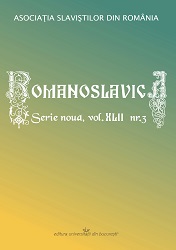Vzťah jazyka a zdvorilosti v zrkadle teoretických koncepcií
The Relation of the Language and Politeness in the Reflection of the Theoretical Conceptions
Author(s): Lucia Anna TrubačováSubject(s): Pragmatics, Sociolinguistics, Western Slavic Languages
Published by: Editura Universităţii din Bucureşti
Keywords: Politeness; Linguistic Politeness; Etiquette; Japanese and Chinese Politeness research; Language and Politeness;
Summary/Abstract: The main purpose of the paper The Relation of the Language and Politeness in the Reflection of the Theoretical Conceptions is to see the linguistic politeness phenomenon through its various scientific descriptions and explanations which also sheds the light to the scientific tendencies and movements within this field of interest. We presume that the understanding of the phenomenon of linguistic politeness – as one of the key topics in sociolinguistics – may provide also an understanding of the social interaction in general. We seek to embrace comprehensively various approaches, their background, contribution but also the later criticism. We start our exploration with the pre-pragmatic conceptions, which have their roots in Europe of the early 20th century, and with a brief glance to the eastern – Chinese and Japanese – point of view. We continue with the pragmatic approaches which create the base of the current linguistic politeness research. Here we focus closely on the influence of three main pragmatic theories within the three individual subchapters – Robin T. Lakoff and the Logic of Politeness; Geoffrey Leech and his Model of General Pragmatics; Penelope Brown and Stephen C. Levinson and Politeness as One of the Universals of the Language Usage. Apart of these theories we consider also the research of the Japanese and Chinese Politeness – represented by researchers Yuego Gu and Sashiko Ide – which also has its roots within the linguistic pragmatics. The third part of our exploration is focused on the post-pragmatic or postmodern approach to linguistic politeness phenomenon. We look closely at the works of Richard J. Watts and Gino Elen and their interesting findings. In conclusions we consider the main tendencies within the linguistic politeness research while the main tendency seems to be the transition from the modern, objective point of view, to more opened postmodern point of view. In other words, we may see how deductive research methods are slowly being replaced by more inductive ones. The question how to use the theory of emergence within our studies of the politeness phenomenon could be also interesting.
Journal: Romanoslavica
- Issue Year: LII/2016
- Issue No: 3
- Page Range: 110-134
- Page Count: 25
- Language: Slovak

